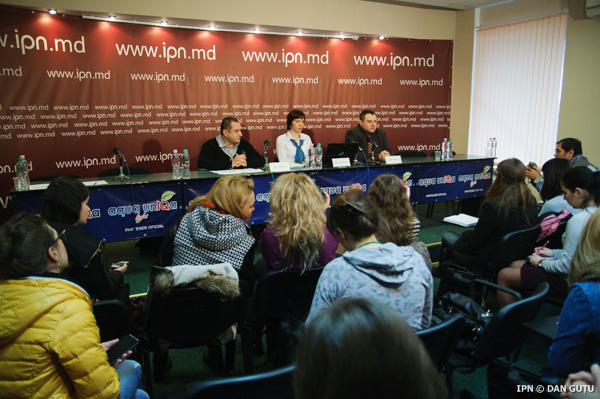
The electoral programs of the political organizations and independent candidates running in the November 30 elections contain generalized proposals regarding the persons with disabilities. Not many election runners refer directly to these persons, while the achievability of their proposals cannot be measured. Such a conclusion was reached by experts of the Civic Coalition for Free and Fair Elections and Keystone Human Services International Moldova, who analyzed the platforms.
In a news conference at IPN, Natalia Cojocaru, project coordinator at Keystone Moldova, said that in September the parties and other political organizations were invited to subscribe to and to include provisions from the Charter of Principles and Commitments in the Area of Disability in their electoral platforms. Only six election runners signed this document.
Afterward, Keystone Moldova decided to analyze the platforms of the registered contenders. When the analysis was made, five election runners hadn’t published yet their platforms. Natalia Cojocaru said the persons with disabilities continue to be treated in a general manner in the platforms. The contenders often wrote in their programs such expressions as ‘vulnerable persons’, ‘persons with necessities’, ‘some categories of people’, etc.
Ten election runners mentioned clearly at least once the persons with disabilities as a target group of their proposals. Some of the contenders used such disfavoring terms as ‘invalid’, ‘invalidity pension’, etc. Twelve of the 21 election runners whose platforms were analyzed intend to increase the social welfare for the disabled persons. Only the Democratic Action Party and the Party “Democracy at Home” suggest developing social services for this group of people.
Igor Meriacre, chairman of the Association “Motivatie”, said the persons with disabilities always wanted to assert themselves as active people and want to enjoy appropriate professional formation and work conditions so as not to be a burden for the budget, but to contribute themselves to its formation.
Executive director of the Legal Assistance Center for Persons with Disabilities Vitalie Mester said the call to the political parties pursued the goal of motivating them to include concrete steps in their programs for improving the situation of the persons with disabilities.
The analysis was made with the support of East Europe Foundation with the resources provided by the Government of Sweden through the Swedish International Development Cooperation Agency for and the Ministry of Foreign Affairs of Denmark/DANIDA.












